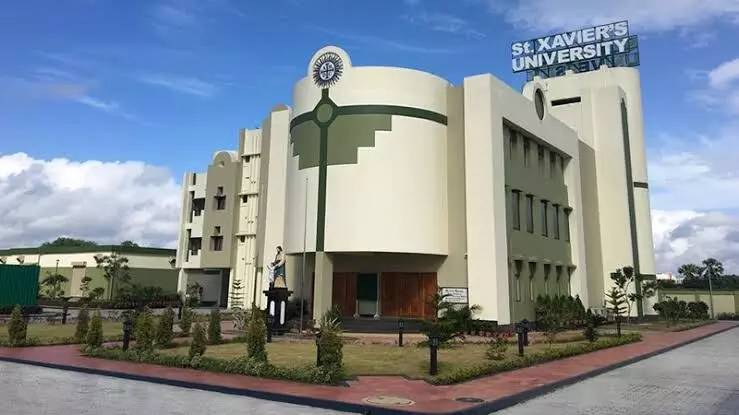St. Xavier’s University hosts 2-day International meet on 'Digital Humanities: New Era Education'

Kolkata: The Faculty of Arts and Social Studies at St. Xavier’s University, Kolkata, in collaboration with Lincoln University College and the St. Xavier’s University Alumni Association, successfully hosted its first-ever two-day international conference on 'Digital Humanities: New Era Education' recently.
The event brought together over 80 participants from across India, both in-person and online, with representation from Kerala, Benaras, Northeast, and West Bengal. It provided a vibrant platform for academicians, researchers, and practitioners to explore the intersection of technology and the humanities.
The chief guest, Prof Dr Sandeep Poddar, Deputy Vice Chancellor of Lincoln University College, commended the organisers for fostering global academic exchange and emphasised bridging cultural and technological perspectives to prepare students for a rapidly evolving future.
Inaugurating the conference, Rev Dr Xavier Jeyaraj, S.J., Registrar of St Xavier’s University, lauded the initiative for advancing interdisciplinary research. Dr Susmita Halder, Dean of Faculty of Arts and Social Studies, and Conference Convenor, highlighted the relevance of the theme in addressing innovation, ethics, and inclusivity in education.
The two-day international conference witnessed a culmination of resource people from all disciplines of the humanities, including Dr Avinash De Sousa, consultant psychiatrist and founder of De Sousa Foundation, Mumbai; Dr Souvik Mukherjee, Associate Professor, Centre for Studies in Social Sciences, Calcutta; Dr Mrinal Kumar Chatterjee, Professor, IIMC Dhenkanal, Odisha; and Dr Nilanga Abeysinghe, Head, School of Psychology, SLIIT, Sri Lanka. Also, contributors were eminent academic leaders such as Dr Rekha Vig (Amity University, Kolkata), Dr Minal Pareek (Sister Nivedita University), Dr Sayantan Dasgupta (Jadavpur University), and Dr Siba Prasad Mohapatra (Bharatiya Vidya Bhavan Institute of Management Science). Their diverse expertise enriched the deliberations across thematic tracks such as Digital Pedagogy, AI and Capacity Building, Ethics and Inclusivity, and Digital Culture and Performing Arts.
The theme aimed to examine the transformative impact of technology on humanities research, teaching, and practice. Discussions spanned thematic tracks such as Digital Pedagogy, Interdisciplinary Approaches, AI and Capacity Building, Ethics and Inclusivity, and Digital Culture and Performing Arts.
Presentations addressed opportunities and challenges in the digital era, offering fresh perspectives on pedagogy, research, and cultural preservation.
Plenary sessions featured distinguished speakers from India and abroad on AI’s role in education, responsibilities of educators, and digital creativity.
Paper presentations formed the backbone of the conference, with researchers presenting case studies, experimental pedagogies, and analytical explorations of digital practices in humanities disciplines. Each session fostered active audience engagement, leading to meaningful exchanges of ideas.
Speaking at the closing ceremony, the Dean expressed her satisfaction with the success of the conference, stating, “Over these two days, we have not only discussed Digital Humanities- we have lived it. This event has been a space for collaboration, critical thinking, and the exchange of ideas that will continue to influence our work long after the sessions have ended.”



